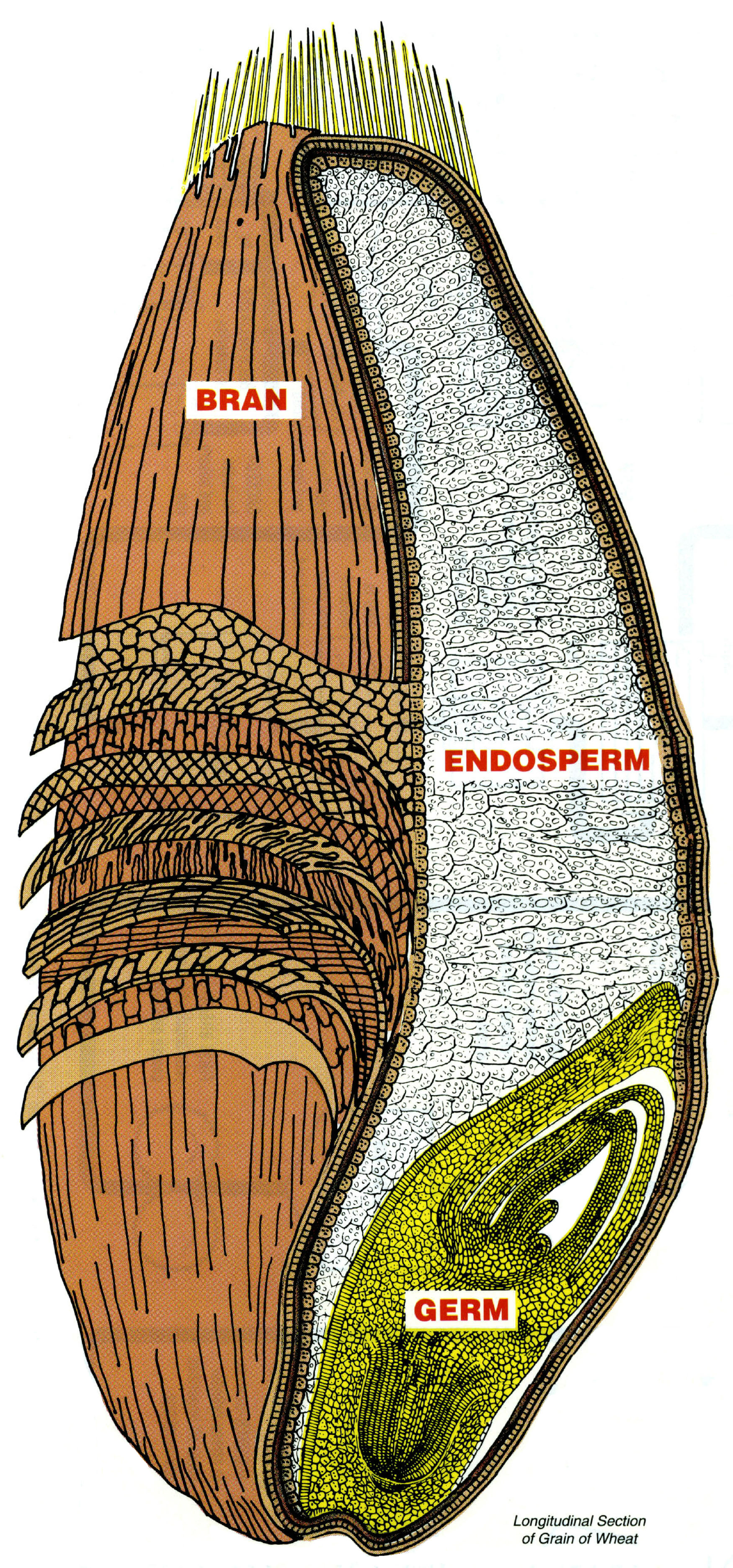Refined products are ubiquitous in every developed and many developing nations. Refined does not mean sophisticated as it might imply; in the case of food preparation, refined means "reduced in nutritional content." Flour, sugar, white rice, juices, and soy protein are examples of refined products. They are the result of thermal, chemical, mechanical, and radiation treatments (i.e. standard food processing). Among the worst refined foods is wheat, or commonly just called flour. It is in over 60% of all packaged foods, it is virtually devoid of all nutrition other than simple starches, and many people do not recognize the link to onset diabetes as with sugar and don't take steps to modify their consumption beyond considering total intake of "carbs", a classification that also includes healthy varieties of macromolecules. Mechanical separation of calories from nutrition (micronutrients, fiber, etc.) in the refining of wheat is also more complete than most other refined products, an obvious disadvantage for the health-conscious consumer.
Diagram of a wheat grain kernel. Notice how visually complex the layers of
bran and germ appear compared with the calorie-rich endosperm.
Processing after removing the most beneficial parts of the grain destroys
the vast majority of the already-sparse micronutrients in the
white, starchy product known as white flour.
The term "enriched flour" is used to give consumers a false sense of security when buying a low-quality product. What they add are just the most basic nutrients necessary to prevent the worst symptoms of deficiency. Of the hundreds of chemicals removed, only a handful is returned. It's not enough to achieve optimal health or reduce risk of many chronic diseases--just enough to prevent obvious conditions like goiters that you would associate with extreme malnutrition. Not only that, the isolated (free) forms are not identical to the complexed nutrients found in unprocessed plant food. Research indicates that absorption of these kinds of isolated vitamins and other nutrients is only appreciable and beneficial when the body is very near a state of deficiency. They can also be toxic to some systems while relieving deficiency in others, which is why your body will only use them as a last resort.
Wheat is not a particularly healthy food to begin with (so I avoid it altogether), and "enriched" wheat even less so. So, if you are relying on these nutrients for health, you're headed for eventual catastrophic system failure like diabetes and cardiovascular disease and others that commonly claim most lives in developed countries, and the downward spiral of medicated symptom control is not far off. In kids the levels of nutrients found in processed/white flour are insufficient to prevent some developmental issues like weak ligaments and inhibited neurological development.
In a whole vegetable foods, amino acids, minerals, vitamins, starches, fats, etc. as well as a large number of unidentified chemicals collectively called phytonutrients exist in very precise ratios and form complex structures that we have evolved to assimilate, often in a synergistic manner. They are basically the yin to our digestive system's yang, developed over hundreds of millions of years, with the trace nutrients acting as cofactors for digestion, absorption, catabolism, anabolism, waste excretion, blood-sugar balance, blood pH regulation, blood purification, and a host of other processes. Science is nowhere near being able to identify and catalog all of the phytonutrients and their complexes and cofactors present in any whole food, understanding their functions, or being able to reproduce those ratios with the right material and chemical properties to digest with minimal systemic stress at every level of digestion and metabolism. In other words, the foods that are best suited for maximum nutrient delivery can currently only be produced through natural plant-mediated processes far beyond our technological means. If these processes are altered, such as with the use of pesticides, refining (whitening), genetic modification, or artificial fertilizers, the balance is thrown off, and it is no longer optimally suited for consumption. Even most multivitamins and supplements in general, unless they are whole foods, are mostly unused in their free form and excreted except in cases of deficiency, adding more strain to the kidneys and liver.
There is always a cost when nutrition is less than optimal, and that cost eventually equates to a loss of usable time and/or quality of life (shorter prime, more discomfort). Aging occurs because adult stem cells can divide only a certain number of times, after which the genetic material both in the nucleus and the mitochondria is too degraded to allow new cells to survive and perform their intended function. By keeping all cells and tissues and organs as happy as possible you can extend the average cell life-span--particularly in the organs and tissues that suffer the most strain trying to regulate body's internal environment--and delay excessive cell divisions that eventually lead to system failure through DNA degradation, potentially by decades.






0 comments:
Post a Comment